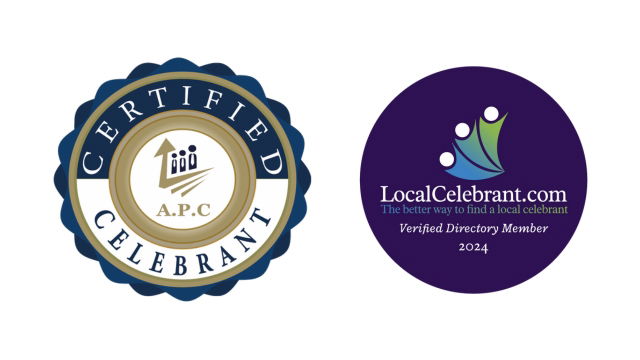What made you want to become a funeral celebrant?
It’s a question I’m often asked - sometimes by families I’m working with, and sometimes by friends who are curious about what led me to this path. Like many celebrants, my journey began long before I realised it.
Quite a few years ago - before I ever considered doing this work professionally - I helped to arrange the funerals for my parents. At the time, I wasn’t a celebrant, just a son trying to make sense of loss while making decisions that felt right for the people we loved. I remember the mixture of emotions: sadness, gratitude, anxiety about getting things “right” and the pressure of trying to fit a whole life into a single ceremony. It felt important that their stories were told truthfully - not polished or idealised, but real. I wanted those services to feel like them.
Those experiences stayed with me. They showed me how powerful a good ceremony can be when it’s shaped with care and honesty - and how painful it can feel when it’s not. I realised that what makes a ceremony meaningful isn’t grandeur or formality; it’s the space it creates for people to remember, reflect and feel understood.
Over time, that awareness grew into something more. I’d spent years working with people in other settings, professionally - listening, helping them navigate complex emotions and finding ways to express what mattered most. Becoming a funeral celebrant felt like a natural extension of that, like it’s a way to use those same skills at one of life’s most tender moments.
What drew me most was the privilege of it: being trusted to help tell someone’s story, to listen deeply and to bring a sense of steadiness and calm when things feel uncertain. Every person’s story is different and every family’s way of saying goodbye is unique. My role is to honour that by crafting ceremonies that feel genuine, human and grounded in love.
Even now, each ceremony feels like an act of quiet service. I will never forget that for the family in front of me, this moment matters profoundly. To help shape it with care and dignity feels like meaningful work - work I’m grateful to do.
So when people ask what made me want to become a funeral celebrant, the answer is simple: I wanted to help people feel seen and supported at one of the hardest points in their lives. I wanted to create spaces where honesty, compassion and peace could coexist. I wanted to help every ceremony - no matter how small, short, or simple - feel like a true reflection of the life it honours.
